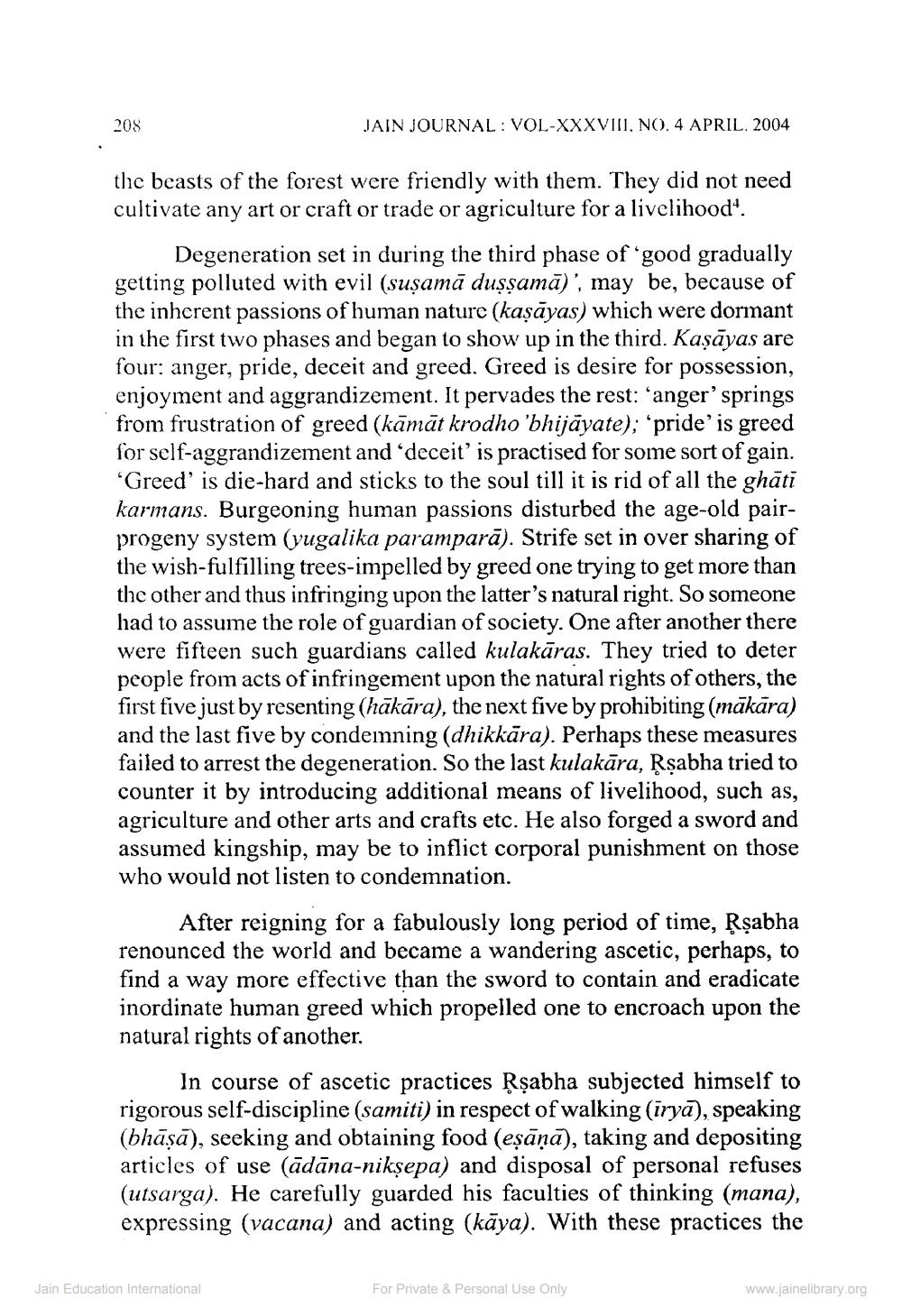Book Title: Jain Journal 2004 04 Author(s): Jain Bhawan Publication Publisher: Jain Bhawan Publication View full book textPage 7
________________ 208 JAIN JOURNAL: VOL-XXXVIII, NO. 4 APRIL, 2004 the beasts of the forest were friendly with them. They did not need cultivate any art or craft or trade or agriculture for a livelihood'. Degeneration set in during the third phase of 'good gradually getting polluted with evil (suşamā duşsamā)', may be, because of the inherent passions of human nature (kasayas which were dormant in the first two phases and began to show up in the third. Kaşāyas are four: anger, pride, deceit and greed. Greed is desire for possession, enjoyment and aggrandizement. It pervades the rest: 'anger' springs from frustration of greed (kāmāt krodho 'bhijāyate); 'pride'is greed for self-aggrandizement and deceit is practised for some sort of gain. 'Greed' is die-hard and sticks to the soul till it is rid of all the ghāti karmans. Burgeoning human passions disturbed the age-old pairprogeny system (yugalika paramparā). Strife set in over sharing of the wish-fulfilling trees-impelled by greed one trying to get more than the other and thus infringing upon the latter's natural right. So someone had to assume the role of guardian of society. One after another there were fifteen such guardians called kulakāras. They tried to deter people from acts of infringement upon the natural rights of others, the first five just by resenting (hākāra), the next five by prohibiting (mākāra) and the last five by condemning (dhikkāra). Perhaps these measures failed to arrest the degeneration. So the last kulakāra, Rsabha tried to counter it by introducing additional means of livelihood, such as, agriculture and other arts and crafts etc. He also forged a sword and assumed kingship, may be to inflict corporal punishment on those who would not listen to condemnation. After reigning for a fabulously long period of time, Rşabha renounced the world and became a wandering ascetic, perhaps, to find a way more effective than the sword to contain and eradicate inordinate human greed which propelled one to encroach upon the natural rights of another. In course of ascetic practices Rşabha subjected himself to rigorous self-discipline (samiti) in respect of walking (iryā), speaking (bhāṣā), seeking and obtaining food (eșāņā), taking and depositing articles of use (ādāna-nikșepa) and disposal of personal refuses (utsarga). He carefully guarded his faculties of thinking (mana), expressing (vacana) and acting (kāya). With these practices the Jain Education International For Private & Personal Use Only www.jainelibrary.orgPage Navigation
1 ... 5 6 7 8 9 10 11 12 13 14 15 16 17 18 19 20 21 22 23 24 25 26 27 28 29 30 31 32 33 34 35 36 37 38 39 40 41 42 43 44 45 46 47 48 49 50 51 52 53 54 55 56 57 58 59 60 61 62 63 64 65 66 67 68 69 70 71 72 ... 74
